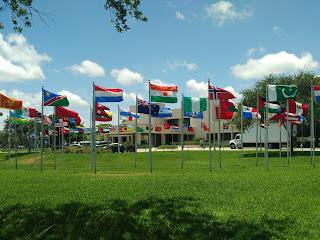Cultural diplomacy could reduce Xenophobia

Antoine de Saint-Exupery said, “If you differ from me, my brother, rather than do me harm, you enrich me” is an ideal reaction when meeting a foreigner there is an opportunity to learn from other experiences. As the world gets smaller through globalization and migration, the world becomes more heterogeneous in terms of cultures, people, languages, and race which is enriching. The US military like many organizations is successful through leveraging on the diversity of its officers’ skill or languages and recruits from different ethnicity and religion. Although enrichment through the heterogeneity of the world is easily seen in organizations, it is often perceived negatively in some communities. The egoistic nature of some communities regularly driven by self-preservation leads to Xenophobia , as explained by Hurlemann et al (2017), this is partly due to evolution since only through solidarity within one's own group was it possible to survive against unknown a
